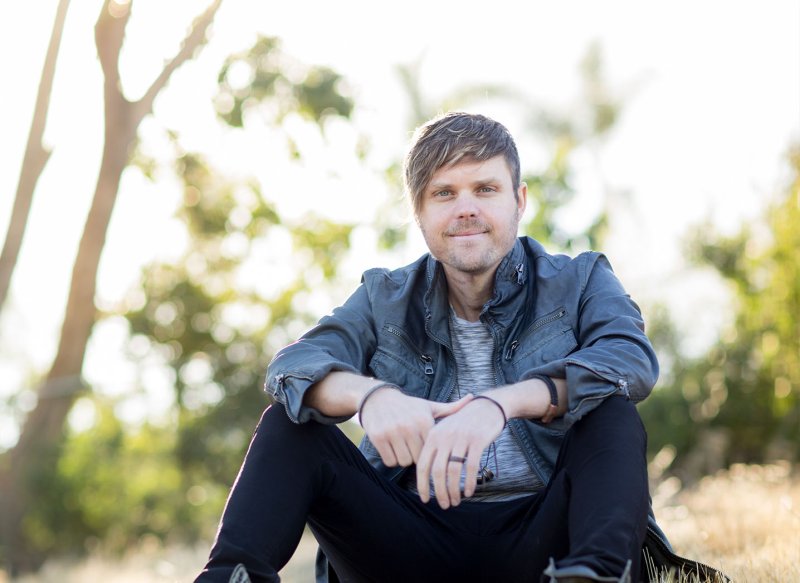
Jason David Sluyter (11) can vividly recall the most difficult moment of his battle with cancer. After having 60 percent of his tongue and all of the lymphnodes in his neck removed over the course of a 15-hour operation, he lie awake in the hospital bed. Due to the swelling from the surgery, he was left unable to speak, eat, or breathe out of his mouth. Attempts at a feeding tube inserted through his nostrils proved ineffective, as an overactive gag reflex made keeping the tube or any food down impossible. Removal of the tube was costly, sacrificing his ability to breathe out of his nose as well. A tracheal tube was inserted as a last resort, to very little avail. Due to constant drainage of blood from the surgery, every few seconds became a struggle for air as Sluyter, in a frenzy, indicated to nearby nurses that the tube must be cleared immediately to allow a brief relief of air into his frail frame.
Intense pain permeated; sleep and rest in any measure became a distant memory. In an effort to subdue some of the discomfort, medication was administered in copious amounts, providing minimal relief, but ultimately taking a toll on his body’s overall functioning. Diuretics soon followed, in hopes of correcting the effects of the pain meds. This perfect storm culminated in a very dark moment for Sluyter, the darkest he can recollect from his months of physically, mentally, and spiritually fighting the attack taking place in his own body.
“I was sitting on the bathroom floor, in my own waste, being cleaned up by a young nurse, unable to breathe or eat, in excruciating pain, thinking, ‘I can’t get through five more seconds of this’ — and at that same moment remembering that the doctor had told me it would only get worse for the next five days,” said Sluyter. “When you’re in that much pain, you’re not thinking clearly or rationally. You just want relief, and the only way I knew I could get that relief was to die.”
“Everything through this process was so out of my hands that I had to give up trying to control it. I’ve stopped trying so hard to create my own legacy and significance and just love life as it is.”
While this moment illustrates the severity of Sluyter’s circumstances, it hardly tells the whole story. To fully capture the incredible journey, one would have to go back before the horrendous recovery period, before the surgery on his tongue and neck, before the hole that was drilled into his hip to assess the cancerous chemicals that had been dispersed throughout his body, before the diagnosis of stage three tongue cancer or the painful, spasming collapse that sent him to the hospital for what would turn out to be a year of tests, treatments, and an endless array of tubes.
In the years before his diagnosis, things were happening for Sluyter. While attending PLNU in 2011, he organized a Bible study for his peers, which grew exponentially during his time as a student; served as the young adults pastor at Skyline Community Church in San Diego; and helped lead praise and worship at his parents church, Generations Life Center. After graduating, he decided to pour his time and talents primarily into helping his parents, while working on building his music career. A talented singer and pianist, he dabbled in almost every kind of music throughout his youth — from pop to rap to rock — and in the process, discovered a passion for writing songs. When he was offered his job as youth pastor at Bonita Valley Community Church (BVCC) in 2016, Sluyter was actively involved in a band called Dare to Be Dreamers, which sought not only to make music, but to use their love of music and film to grant the wishes of children with terminal illnesses across the country. Media outlets had taken notice and their efforts were gaining traction. That success, coupled with marriage to his girlfriend, Alyson, and a new job, meant things were on track for Sluyter. Things were going so well, in fact, that he paid no mind to the small growth on his tongue. That is, until a biopsy changed everything.
“My first response after receiving the diagnosis was: ‘this isn’t my story,’” he said. “So I ignored it. I kept doing concerts and preparing to start my new job, but then it all started falling apart. My bones hurt; my body would lock up; at one point, I physically couldn’t get out of bed. I knew I couldn’t pretend it wasn’t real anymore, and in the matter of a month, my life completely flipped upside down.”
Thirty-five rounds of radiation later, Sluyter, who had lost 80 pounds over the course of the treatments, was left unable to speak for six months and unable to taste food for nine. To make matters worse, he was told there was a chance he may never speak again, and would very likely never be able to sing.
Now a year and a half since his diagnosis, Sluyter can not only speak, but is actively engaged as a pastor again, speaking to his youth group on a weekly basis. He can not only sing, but has released a song, “These Walls,” that, with millions of downloads, is taking the Christian community by storm. He not only has a new tongue — rebuilt from the skin of his left forearm, on which he will now forever bear scars — but he also has a new outlook on life.
“I gave up on striving,” said Sluyter. “Everything through this process was so out of my hands that I had to give up trying to control it. I’ve stopped trying so hard to create my own legacy and significance and just love life as it is. I don’t take anything for granted now — eating ice cream, kissing my wife — everything is a first again.”
Enjoyment of the simple pleasures in life isn’t the only revelation to come out of this ordeal. For Sluyter, the uncomfortable nature of this journey has actually brought a new level of comfort around his faith. Once bound by a need to have answers for his own questions and those of others, he now finds himself more at ease with the unknown.
“Her singing was the only peace I got and the only thing that could help me fall asleep.”
“Before, it bothered me and scared me to not have all the answers, because as a pastor I felt I needed to have an answer for everything,” he said. “Now, I’m okay not knowing and admitting that I don’t know. I will keep pursuing truth, but I’m not going to stress about it; I’m going to enjoy that pursuit.”
Sluyter alludes to this embrace of uncertainty in the bridge of “These Walls,” writing, “even in the suffering, I’ll sing; even in my questioning, believe.” It is this line that comprises the only part of the song written post-cancer, the rest having been penned prior to his diagnosis. And while he felt a connection with the lyrics before, he never could have foreseen how the song would later become an anthem for his story and his faith — or the global impact it would have, with translations in several languages, coverage by multiple news stations, and a top 10 ranking on the iTunes gospel charts.
Revisiting his dark moment, Sluyter admits he doesn’t think of his journey as heroic. In fact, most of what pulled him through that time was simply considering what other people would think of him, the message it would send to his students, the impact it would have on his wife. And his contemplations of suicide weren’t his only brushes with the idea of death. Once the world caught wind of his condition, an online ambush ensued. Friends, family, and acquaintances flocked to Facebook to leave a kind word and reminisce on the ways in which Sluyter had impacted their lives.
“It was like attending a Facebook funeral, with people saying all these kind things about me — even people I hadn’t talked to in years or who I thought didn’t like me or didn’t even know who I was,” he said. “And it made me wonder why people wait until someone is on their deathbed to say these things, when they could have so much more impact and healing and closure by saying them sooner.”
He now takes this approach with the people in his own life, especially his wife, whose support was paramount to his recovery. With Sluyter in the hospital for the couple’s entire third year of marriage, his wife stepped in as sole breadwinner, nurse, and interim youth pastor. In addition to her job as a middle school math teacher, she helped grow the youth group at BVCC from 20 students to almost 100. And when not at school or church, she was by Sluyter’s side, learning how to care for him and providing what comfort she could.
“Alyson would come to the hospital at night and sing to me,” said Sluyter. “Her singing was the only peace I got and the only thing that could help me fall asleep.”

The year definitely took a toll on their marriage though, Sluyter confirms. Unable for months to eat a meal together or even verbally communicate, the couple looks back at that time as a challenge for sure, but an even stronger testament to their commitment to one another.
“Before this, when stressful things came up, we knew if we just worked hard and planned, we would be okay,” said Alyson. “In this case, all we could do was trust. We didn’t know what was going to happen and we couldn’t do anything to make it better. All we could do was sit by each other and pray, and it brought us so much closer. We already knew that we loved each other and would be there for each other, but now we know love and trust on an even deeper level.”
In addition to a stronger relationship with his wife, Sluyter also feels better able to relate to others around him, especially those hurting both physically and emotionally. His song has served as an inspiration and encouragement to many to revisit the dreams they’ve long thought dead. And when those who have been impacted by his words reach out with their stories of pain and suffering, Sluyter embraces the pain with them, knowing just what he needs to say.
“Nothing; there’s really nothing I can say that is going to make them feel better,” he said. “The best thing anyone said to me was, ‘this sucks.’ I appreciated it so much because that person wasn’t trying to fix me or give me a cliché or sugarcoat anything. I’ve found that most people don’t know how to handle another person’s pain. That person really just needs to be loved.”
Sluyter’s ability to connect with others extends all the way to the pulpit, where he brings a new level of honesty to his messages, offering his audience an authenticity that he says fosters deeper restoration. Living by the motto, “when you’re hiding you’re not healing,” he aims to live a life of transparency with others — and with God.
“Growing up, I always bottled things,” he said. “I hid my emotions and lived with the mindset that I couldn’t be angry at God. Now I’ve come to the place of knowing I can be as honest as I need to be with Him. He already knows anyway.”
Equipped with this mindset, Sluyter has moved well beyond the restraints of an illness that once had him bound, past the threat of dormant dreams, into a freedom of confident and wholehearted living and the promise of a future far brighter than he imagined.
“When I thought my old dreams were dead, I didn’t give up on them, but I also started to pursue new ones,” said Sluyter. “And now I’m combining the old with the new and realizing different dreams, bigger dreams. I’m doing everything with crazy passion — preaching every sermon and singing every song like it’s my last. And I’m trying to remember that, at the end of the day, my identity isn’t really about any of these things at all. It’s all about Christ, who He is; not what I can do for Him.”

The Viewpoint
PLNU's university publication, the Viewpoint, seeks to contribute relevant and vital stories that grapple with life's profound questions from a uniquely Christian perspective. Through features, profiles, and news updates, the Viewpoint highlights stories of university alumni, staff, faculty, and students who are pursuing who they are called to be.